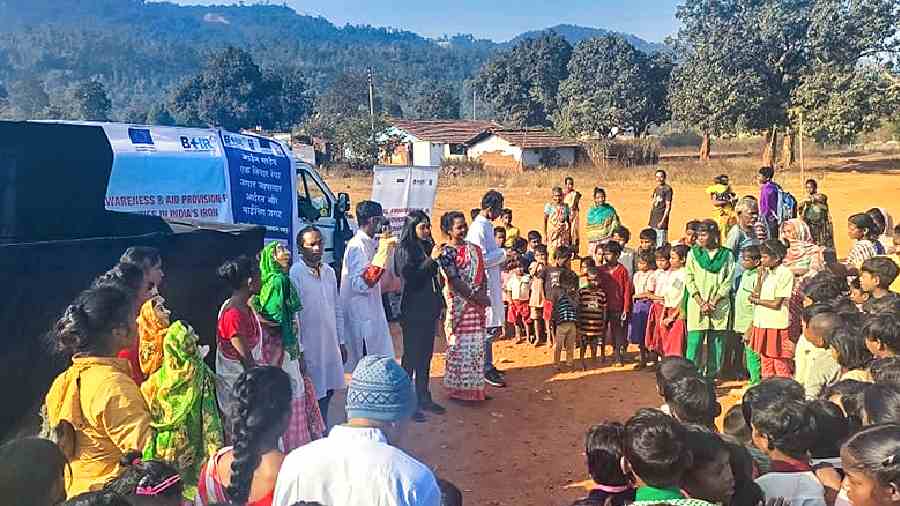A Delhi-based NGO has started a project from the iron-ore-rich Saranda area in Jharkhand’s West Singhbhum, to make tribal villagers aware of environment and mining laws.
Members of Environics Trust as part of the United Nations Development Program (UNDP) project on Thursday started the legal awareness session in the local tribal dialect (Ho language) at villages in Noamundi (hosting Tata Steel’s iron ore mines) and Gua (hosting Steel Authority of India Limited iron ore mines).
“We did puppet shows and skits through our team members on environment and mining laws at the villages in tribal dialect. The purpose was to create awareness (particularly legal) and access to remedies for communities adversely affected by mining operations on key priority issues related to land acquisition, environmental concerns and participation in public processes as part of social and environmental impact assessment,” said program coordinator Sonal Tiwary who is also a practising lawyer at Jharkhand High Court in Ranchi.
According to the Indian Bureau of Mines’ 2010 report, West Singhbhum is the most mined district in the state and accounts for almost the entire share of iron ore mined here.
“We will be covering other villages in the Saranda area which is amongst Asia’s largest iron ore reserve areas and also seeking support from West Singhbhum district administration in conducting similar training sessions in villages. We will also be selecting among the villagers after training ‘para legal volunteers’ who would be training local villagers and assisting them in day-to-day affairs,” said Tiwary.
The trust also plans to conduct similar training sessions in areas affected by coal, mica, bauxite and other mining done in Jharkhand.
“Through the exercise, we hope to strengthen the capacities of para-legal volunteers, human right defenders and activists to address human rights abuses in the context of mining operations with a particular focus on laws and legal processes including land rights, environmental rights, health and public participation in social impact assessment and environmental impact assessment,” added Tiwary.
There would also be training sessions on the district mineral foundation trust and its mandated use for mining-affected communities.
The seven-module training materials created for the villagers covered laws of the land and rights of people, understanding iron ore mining processes, knowing and mapping resources, regulatory processes in mining, environmental and forest clearances and administrative and legal recourse.










